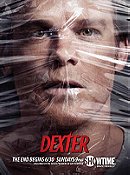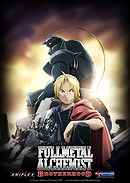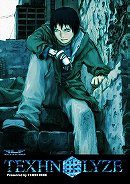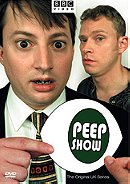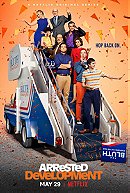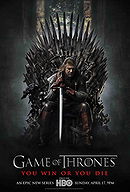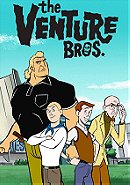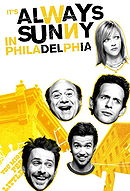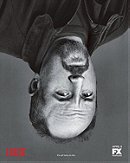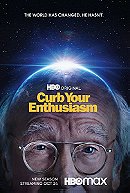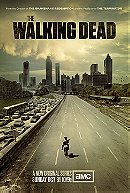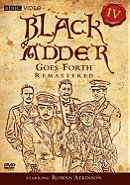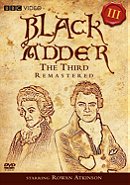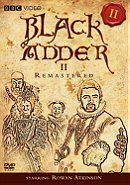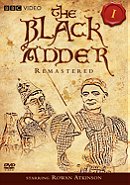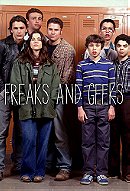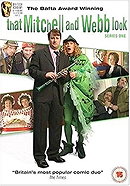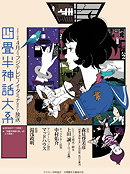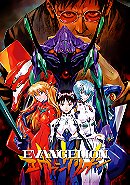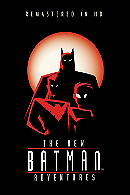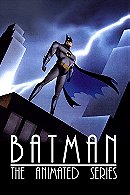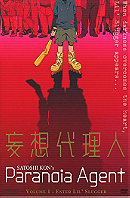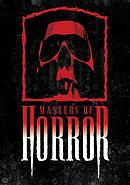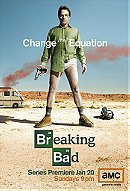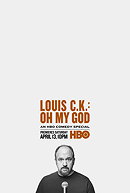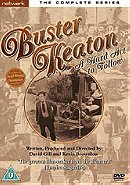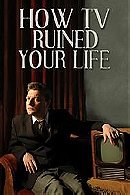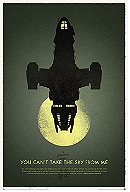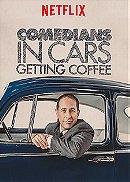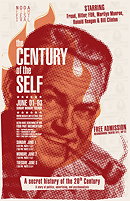TV Journal
Sort by:
Showing 1-50 of 71
Decade:
Rating:
List Type:
I got hooked by seeing clips, then the the series compilations, which start from series E. My favorite episode is the one with Brian Blessed (I15).
My favorite regulars besides Stephen Fry and Alan Davies:
Bill Bailey
David Mitchell
Rich Hall
Ross Noble
Sean Lock
Rob Brydon
Jimmy Carr
Regulars I like:
Jeremy Clarkson
Sue Perkins
Lee Mack
Phill Jupitus
Dara Ó Briain
Johnny Vegas
Regulars that are OK:
John Sessions
Reginald D. Hunter
Clive Anderson
Regulars I dislike:
Jo Brand
My favorite regulars besides Stephen Fry and Alan Davies:
Bill Bailey
David Mitchell
Rich Hall
Ross Noble
Sean Lock
Rob Brydon
Jimmy Carr
Regulars I like:
Jeremy Clarkson
Sue Perkins
Lee Mack
Phill Jupitus
Dara Ó Briain
Johnny Vegas
Regulars that are OK:
John Sessions
Reginald D. Hunter
Clive Anderson
Regulars I dislike:
Jo Brand
Mr. Saturn's rating:


Dexter (2006)

I regret starting this show, but Dexter is more interesting now than ever, because the show is spending less time with the annoying characters. When the show focuses on Dexter and the villains, it's usually great, but it's held back by dull supporting characters, boring office/family drama, and middling side-plots. I'll probably finish the series, or just see the final episode.
Mr. Saturn's rating:


This is on Netflix Instant so I'll give this a try, but it seems too broodingly adolescent.
Texhnolyze (2003)
This was the most popular response by far when I asked for cathartic but life-affirming anime on MyAnimeList , so I'll give this a try.
Peep Show (2003)

I feared Peep Show would be an unremarkable dramedy, but the characters are too myopic and selfish for much character development. Peep Show style lives up to its name because the audience can see from their POV, hear their thoughts, and vicariously live the best bits of their lives.
(Shows like Peep Show make me realize I'm an insatiable TV addict. I won't see any new shows for the rest of this year.)
Mr. Saturn's rating:



Yay! I was a little worried because the laughs were less frequent in the the first episode; to use James Agee's words, there were titters and a few yowls, but none of the belly laughs I remembered. I mistakenly worried the plot would be less funny because it accommodated the actors' busy schedules, but there are less scenes with 3 or more of the family members.

Having episodes centered on individual characters made this the most satisfying season yet (it's at least better than season 3), because the characters are more fleshed out. I love the little things connecting all of their different adventures.
It also made sense plot-wise to have the family separate. Netflix is interested in making season 5, and I expect this will be the style if it's made.

The funniest TV show and there's no canned laughter. If you have problems with cringe humor you'll probably dislike the show.
Mr. Saturn's rating:


Game of Thrones (2011)

On hiatus.
The biggest flaw of the show is what some people call 'sexpositon', the relatively infrequent and uninspired exposition scenes filled with sex; I heard the time should have been spent on book scenes missing from the series. This is a minor gripe.
Game of Thrones is an epic fantasy adventure about dramatic Medieval politics. GOT is addictive, expertly acted and suspenseful.
Mr. Saturn's rating:


The Venture Bros. (2003)

On hiatus.
Season 5 premiere: May 19th, 2013
I love the art style and theme of the show; the show's usually hilarious.
It's about the beauty of failure. It's about that failure happens to all of us...Every character is not only flawed, but sucks at what they do, and is beautiful at it and Jackson and I suck at what we do, and we try to be beautiful at it, and failure is how you get by...It shows that failure's funny, and it's beautiful and it's life, and it's okay, and it's all we can write because we are big...failures. - Doc Hammer
My favorite characters are Hank and the gay superhero Captain Sunshine, voiced by the actor for Batman the Animated Series.
The series has a few gay supporting characters and there are more than a few jokes about Hank possibly being bisexual, or mistaken for being gay.
I dislike Sergeant Hatred's increased role in season 4; he's not very funny.
Mr. Saturn's rating:



On hiatus.
Season 9 Premiere: Fall 2013
These characters are the worst assholes on any sitcom I've seen. Someone astutely described this as 'Seinfeld on crack'; they're even more myopic and selfish than the Seinfeld characters. They're hilarious.

Mr. Saturn's rating:


Louie (2010)

On hiatus.
Season 4 Premeire: 2014
After watching Seinfeld and Curb Your Enthusiasm I was hesitant to watch Louie because I feared it would be another comedy of manners, another comedy about 'nothing'. Although Louie is sometimes absurd, it's the most thoughtful, moral, and uplifting sitcom I've seen, except the first 10 or so Simpsons seasons.
Mr. Saturn's rating:


Season 9 will probably be made.
Curb is an even funnier and darker comedy of manners than Seinfeld, the show co-created and mostly written by the star and writer of Curb.
Mr. Saturn's rating:



On hiatus.
Season 4: October 13th, 2013
The first season is a great survival show set in a post-apocalyptic world filled with zombies, but the second season suffers from the absence of the fired original show-runner. TWD's story sometimes becomes a soap opera centered around finding a missing character, a story arc stretched out far too long. The third season is bleaker, more dramatic, and better than the previous seasons. I hope the fourth season won't be another bad season transitioning between show-runners like Season 2; the showrunner for season 3 is stepping down.
Mr. Saturn's rating:


Blackadder Goes Forth (1989)

The dialogue and acting's great but, excluding the final episode, this is story-wise the least funny Black Adder.
Mr. Saturn's rating:


Blackadder the Third (1987)

Black Adder is smarter and Charlie is dumber, but the stories aren't as hilarious as the previous two series.
Mr. Saturn's rating:


Blackadder II (1986)

Baldrick is even funnier, now he's a shameless halfwit; he's like a non-socipathic Charlie from IASIP. Edmund became an ornery wisecracking bastard. I don't prefer this kind of arch humor, but Black Adder II is almost as funny as the first.
Mr. Saturn's rating:


The Black Adder (1983)

Apparently, Black Adder is meaner and less foolish in the other series which have a more sardonic repartee. I enjoyed the silly situational and allusive humor, but the other series are considered funnier. Too bad Brian Blessed isn't in the other series.
Mr. Saturn's rating:



The historian applies lateral thinking to history, to link seemingly disparate discoveries, like the invention of the pike to rocket ships. It's a wonderfully heady experience.
Mr. Saturn's rating:


Freaks and Geeks (1999)
Freaks and Geeks is a little funnier and dramatically satisfying than I expected. Like The Wire, it gets brilliant after the pilot.
The creator's walkthrough and season 2 reveal interviews are worth reading.
The creator's walkthrough and season 2 reveal interviews are worth reading.
Mr. Saturn's rating:



Look is a little funnier than Situation, but I can do without the canned laughter; at least it's not overdone.
Mr. Saturn's rating:



Mitchell and Webb are hilarious sketch comedians. Unfortunately for the sequel, Look, they started using laugh tracks. They're funny enough I make an exception to my no laugh track rule.
Mr. Saturn's rating:


Brass Eye (1997)

This is one of the funniest satires and mockumentaries I've seen, despite the misanthropic humor; it's far better than political comedy shows.
Mr. Saturn's rating:


This interview has the gist of Fry's ideas about America.
Stephen Fry has some great ideas and insights dispersed throughout the series, but his ideas about American optimism while hurrying through America don't justify the running time alone. (Most of the interviews are interesting, but there are far too many boring bits.) Fry's vacation through many beautiful areas in America made me want to experience many areas for myself; I'd add seeing all 50 states to my bucket list, if I had one.
Mr. Saturn's rating:



edit: I 'll write more about this 15 hour epic someday; my main conclusion is Berlin Alexanderplatz is concerned with postmodernism, and somewhat concerned about the politics of Weimar Germany, but the greatest focus is on Franz growing up, and the series' politics and social commentary is brilliantly shown to parallel modern times; Franz's struggles with social anxiety and morality are timeless and I suppose every mature human being would relate to them...
The best thing I can think of would be to create a union between something as beautiful and powerful and wonderful as Hollywood films and a criticism of the status quo. That's my dream, to make such a German film. - Rainer Werner Fassbinder
It is impossible to judge a snake without also putting the marsh which the snake obtained its nourishment on trial. - Theodor Lessing

Franz is a real piece of shit; he was released from jail for beating his girlfriend to death, and when life on the outside is too much he beats his deceased girlfriend's sister manhandles her until she screams, grovels, and begs for mercy, much to his delight. Because of his brutality Franz said he's invigorated. But I'll try to keep my judgement from preventing me from possibly growing as a person; I assume everyone's felt desperate like Franz at least once in their life.
I don't want to go on as before.
I don't want to go on as before.
I don't want to go on as before.
I don't want to go on as before. - Franz
He naively decides to be no different from everyone else and be an honest man.
By trying to be normal he is giving up responsibility and absolving himself like pharisees do, to do terrible things and not really change much at all, except becoming sanctimoniousness in their cruelty.
Maybe I'm just being cynical. Although Fassbinder probably wanted his audience to learn from Franz's folly to be 'normal', there's no doubt he wanted to create a beautiful film. Franz once compares his new sense of freedom to a bird, but later the camera pans to a caged bird in a bar.
Mr. Saturn's rating:


Home Movies (1999)
Home Movies can be a little hit or miss sometimes; the humor can be too arch, childishly absurd, and cinephilic for some tastes, but I love the spirit of the show and the brilliant and often improvised humor.
Mr. Saturn's rating:


The Tatami Galaxy (2010)
Someone on the internet wrote this is Welcome to the NHK on crack, so I have high expectations.
Episode 1 and comparisons to NHK, mythology, and empiricism

So far, it seems The Tatami Galaxy is more manic and surreal and not a slice of life anime (I like the stream of consciousness narrative, but because I'm a slow reader the subtitles go a little to fast), and its central character is a dropout, but not a hikikimori. Whereas Sato's isolation and blame for the stagnation stems from his social anxiety, Watashi projects all vice and blames his mistakes on his friend Ozu.
To his own detriment, Watashi contemptuously treats Ozu and blames him for corrupting and ruining his life, as if he had no say in the matter. (I know the demonization of Ozu is rooted in Japanese lore and is probably secular, and I'm not Christian anymore, but I hope this analogy holds.) By demonizing Ozu, he is giving himself carte blanche to do whatever, and he virtually deifies himself as a fallen angel. It's an incredibly narcissistic, myopic, and delusional decision. Even Lucifer fell from heaven.
Or maybe a more precise interpretation is his fears are more epistemological than spiritual; he acts like some sort of impressionable blank slate, because he wants to believe his problems are from experience, chiefly Ozu's influence, and aren't innate and unfixable.
I empathize with Watashi because it's tempting to absolve yourself from blame if you've been wronged, and blame someone or society for one's limitations.
Episode 2 and eternal recurrence


I'm unsure how Watashi is experiencing his past in different ways (i.e. if it's some sort of multiple worlds theory, Watashi's deterministic daydreaming, or some sort of cosmic eternal recurrence), but I'm certain of the point. I think eternal recurrence posits everybody will relive their life exactly infinitely, in order to imagine how you'd feel (i.e. doom, despair, indifference, or happiness), and how one really feels about their life.
Watashi wastes his time seeing his past in rose-colored glasses, wondering where he could have made the right choice to get his 'rose-colored' campus life. He's paralyzed with bitter regret that a wonderful life changing moment never came by happenstance. The thought of living life pining for a non-existent past and agonizing over what if scenarios for eternity, let alone one lifetime, seems like hell.
The final episodes (spoilers)

As I expected, Watashi shut himself in ruminating over the directions his life could have taken; he matured and grew to appreciate the multifaceted nature of and love people, his life, and his best friend Ozu. He saw all of his imperfect alternate lives and realized the only wasted life was the one spent pining for others. After going back in time for the last time, he decides he wants to be friends with all the people he was fated to meet
(the maximum amount of actual friendships one can have is about 150). Watashi realizes he can only make something of his life if he lives in the moment and takes responsibility for his life.
The Tatami Galaxy was less sobering or poignant than NHK, probably partially because I relate more to the Sato's problem of feeling inferior and not superior to society, like Watashi; there is less filler than NHK, keeping in mind NHK is a slice of life anime. I might see this again because it's only 5 hours.

So far, it seems The Tatami Galaxy is more manic and surreal and not a slice of life anime (I like the stream of consciousness narrative, but because I'm a slow reader the subtitles go a little to fast), and its central character is a dropout, but not a hikikimori. Whereas Sato's isolation and blame for the stagnation stems from his social anxiety, Watashi projects all vice and blames his mistakes on his friend Ozu.
To his own detriment, Watashi contemptuously treats Ozu and blames him for corrupting and ruining his life, as if he had no say in the matter. (I know the demonization of Ozu is rooted in Japanese lore and is probably secular, and I'm not Christian anymore, but I hope this analogy holds.) By demonizing Ozu, he is giving himself carte blanche to do whatever, and he virtually deifies himself as a fallen angel. It's an incredibly narcissistic, myopic, and delusional decision. Even Lucifer fell from heaven.
Or maybe a more precise interpretation is his fears are more epistemological than spiritual; he acts like some sort of impressionable blank slate, because he wants to believe his problems are from experience, chiefly Ozu's influence, and aren't innate and unfixable.
I empathize with Watashi because it's tempting to absolve yourself from blame if you've been wronged, and blame someone or society for one's limitations.


I'm unsure how Watashi is experiencing his past in different ways (i.e. if it's some sort of multiple worlds theory, Watashi's deterministic daydreaming, or some sort of cosmic eternal recurrence), but I'm certain of the point. I think eternal recurrence posits everybody will relive their life exactly infinitely, in order to imagine how you'd feel (i.e. doom, despair, indifference, or happiness), and how one really feels about their life.
Watashi wastes his time seeing his past in rose-colored glasses, wondering where he could have made the right choice to get his 'rose-colored' campus life. He's paralyzed with bitter regret that a wonderful life changing moment never came by happenstance. The thought of living life pining for a non-existent past and agonizing over what if scenarios for eternity, let alone one lifetime, seems like hell.

As I expected, Watashi shut himself in ruminating over the directions his life could have taken; he matured and grew to appreciate the multifaceted nature of and love people, his life, and his best friend Ozu. He saw all of his imperfect alternate lives and realized the only wasted life was the one spent pining for others. After going back in time for the last time, he decides he wants to be friends with all the people he was fated to meet
(the maximum amount of actual friendships one can have is about 150). Watashi realizes he can only make something of his life if he lives in the moment and takes responsibility for his life.
The Tatami Galaxy was less sobering or poignant than NHK, probably partially because I relate more to the Sato's problem of feeling inferior and not superior to society, like Watashi; there is less filler than NHK, keeping in mind NHK is a slice of life anime. I might see this again because it's only 5 hours.
Mr. Saturn's rating:


Welcome to the NHK (2006)

NHK is a bittersweet slice-of-life anime and it really isn't about conspiracy; it's life-affirming, challenging, and worth watching for its sheer entertainment value alone. I hope I matured watching this show. A couple lessons I gathered were to not present oneself with too many false dichotomies about reality and one's behavior, and to accept I will the way I live.
Satou and his friends never achieved the dreams of their youth, but at least they can look at their lives and say they gave their best effort; they're much better off that way.
NHK is awesome and humorous. The author was a recluse when he wrote NHK and Satou, his protagonist, is a genuine NEET (Not in Employment, Education, or Training). The anime comically frames Satou's troubles in a way that's empathatic and derisive e.g. he pathetically frets over what everybody thinks of him, while not realizing almost everyone like him is self-involved and don't care much about a stranger. His choice to project his self doubts onto shapeless faces and belie their thoughts harms himself much more than being rational. Maybe like me he sometimes believes if only I wasn't held back I'd be great, which is an incredibly cowardly, delusional, and lazy excuse.
His relationship with the manic pixie dream girl (this is comparable to a magic negro) seems unlikely to end well because she seems manipulative and Satou might have an unhealthy expectation of love and success i.e. a lover will fix him before he even likes himself and having delusions of grandeur. NHK warns don't count your chickens before they hatch, and don't expect them to fall in your lap.
Satou's struggles with porn and gaming really hit home, especially spoiler when he looks at the mirror and wonders how he lost all ambition and wasted his life.
"In a year I can play every gao game ever made." And later he said about all the porn models, "I gotta catch 'em all." Sadly those are reoccurring thoughts whenever I watch porn or play games.
Side-note: It's funny Satou got a gay ending on his first play-through, which presumably is making fun of a Clannad dating sim which has a joke gay-option ending.
"To be loved, you've got to be part of." - Neil Young, A Man Need a Maid
I like how Satou realizes even if he's a recluse he's not a hikikomori if he gives a sincere effort; that's a step I need to take.
You think they're judging you when they just want to help. If that's the case, don't you think you're the one being dishonest. You're the one looking down on others, not me.

I thought the most poignant and cathartic episodes about being a NEET were done with, but I'm glad I stuck with this show because it's a great slice of life anime, and the gaming episode showed so much of what's wrong with my life. When Satou was grilled by his friend for using the perfect game worlds to substitute real life achievements and relationships; his future self resembled me too much. I thought fuck me that can be me in a few years. So I decided next year I'll limit myself to 100 hours of gaming a year or one week at most, instead of two. Also, I'll limit my time on the internet to 2 hours a day at maximum.



I read this series is about reality and not conspiracy like I feared; the behavior and not the plot seems outlandish. If the show is anywhere near as poignant as I hope and funny as this scene, I'll probably enjoy this show.
Maybe it'll be a rude awakening how much I relate to hikikomori (i.e. a shut in) lifestyle and all the fucked up characters.
P.S. Anybody who liked the musical about disappointment called Avenue Q will love NHK and vice-versa.
Mr. Saturn's rating:



The show becomes a great psychological drama after around the 15th episode.
Shinji's an interesting character; he's kind of sulky and sullen, and the protagonists are teenagers, but their stories, especially Shinji's, aren't about angst and navel-gazing, but how the audience views itself. For better or worse, I relate to Shinji's anxieties about approval from others, his sense of duty, and his self destructive and nostalgic escapism. The ending was life affirming and it reminded me of The Cube. Shinji realized he has the power to change his perspective and complete withdrawal won't make him happy.
I recommend the Rebuild of Evangelion, because in the second film it has a markedly different plot.
Mr. Saturn's rating:


The Simpsons: Family Therapy (1989)
Matt Groening wrote the shorts and they're just as funny as the early Simpsons episodes. Any Simpsons fan should see them, even though they haven't been released on DVD.
Mr. Saturn's rating:


The New Batman Adventures (1997)

Batman the Animated Series was usually adult level entertainment children can also enjoy; this series is more aimed towards children than the previous serious, but it's still worth watching. The show-runners wanted to make the show more fun by replacing the adult Robin with a younger one, and making it lighthearted and less dark, in content and in animation style. Most of the character re-designs make the villains and even Batman look and feel less psychologically and morally complex, but the show hasn't become juvenile; the writing is for the most post part on par with the previous series, but it's not as consistently dark.





Mr. Saturn's rating:


Batman: The Animated Series (1992)

After seeing Mask of the Phantasm I realized the animated Batman has adult appeal, not limited to the art deco noir art-style or nostalgia.
Batman is thematically a show primarily for adults that kids can enjoy too, unlike the series Doctor Who. Batman is darker, more complex, and more adult than any of the other film or TV Batmans.
Despite a slow start, the series picks up in quality pretty quickly. Like many episodic shows like Star Trek TNG, the quality wavers a little, although it's consistently great TV.











Mr. Saturn's rating:


Six Feet Under (2001)
I’m just saying you only get one life. There’s no God, no rules, no judgements, except for those you accept or create for yourself. And once it’s over, it’s over. Dreamless sleep forever and ever. So why not be happy while you’re here. Really. Why not?
The drama has its flaws and few moments drag on like a poor soap opera, but the characters are very fleshed out, especially for a TV show, and I really empathized with and related to the family's experiences. Recommend if the idea of a low-fantasy psychological drama about funeral directors intrigues you. The show is all about the denial of death and the will to live.
The irony of man's condition is that the deepest need is to be free of the anxiety of death and annihilation; but it is life itself which awakens it, and so we must shrink from being fully alive. - Ernest Becker, The Denial of Death
Six Feet Under's observations about suburban existence are similar to American Beauty because the show was created by the same writer.

Mr. Saturn's rating:


Serial Experiments Lain (1998)

Serial Experiments: Lain is a brilliant Lynchian steam-punk anime. The show does become intriguingly confusing and it doesn't end in frustratingly ambiguous way.
The film Solaris explores how well we can really know people when the main character realizes the planet is creating a copy of somebody he loves based on his memories.

Similarly, when Lain figures out she can erase people's memories and she can virtually rewind and reprogram life, the alienation, anxiety, and guilt over destroying experiences seems to erode her sense of identity and sense of being real. Being a 'god' capable of manipulating other people's reality makes her existence very lonely.
Mr. Saturn's rating:


Paranoia Agent (2004)

Paranoia Agent is a surreal psychological thriller with many seemingly disparate characters connected in a revealing way in the last episodes; the show is enjoyable without knowing until the end the events of the show are an allegory for post-war Japan. This is Satoshi Kon's masterpiece about the human condition.
Mr. Saturn's rating:


FLCL (2000)

FLCL perfectly represents what it's like to grow up despite its surreal setting. I wish I saw it when I was younger. FLCL is a fun and exciting adventure that doesn't take itself too seriously. It's not as weird as it may seem.

Mr. Saturn's rating:


I listed my favorite episodes.
I recommend John Carpenter's psychological horror episode Cigarrate Burns; it's about a man hired to track down a film that causes the audience members to brutally kill each other.
Mr. Saturn's rating:



On hiatus.
The second half of season 5, the last season, will air July 14th, 2013.
Breaking Bad has a great balance of light and dark humor, pathos, suspense, and thrilling moments. The writing is consistently cleverly written and Walter White, the protagonist, is masterfully acted by Bryan Cranston. Breaking Bad is an exhilarating crime show, and a serious heartrending drama at times. Breaking Bad is tied with The Wire for my favorite show.
Mr. Saturn's rating:



I love Stephen Fry's hedonistic musings on pleasure, particularly his idea the most abhorrent thing is denying pleasure or worse, reproaching the pleasures of others.
Mr. Saturn's rating:


Obviously stress is damaging and worth less than peace of mind, but I learned a lot. Surprisingly, in a baboon society where tuberculosis disproportionately wiped out the aggressive loners (primates, including people with higher social standing have less stress), resulting in a society where cruelty virtually ceased; they lost nothing and gained so much. Research suggests compassion makes you live longer, while cruelty can even harm the apparent victor. Therefore, it's foolish to be cruel.
More egalitarian societies are happier. Even in capitalist societies, a scientist pointed out, people can bypass the social standing stress by defining yourself outside the rat race. (So the people who boast the most probably feel the most inadequate. They're fools for buying into that identity. Or maybe I just have sour grapes.)
More egalitarian societies are happier. Even in capitalist societies, a scientist pointed out, people can bypass the social standing stress by defining yourself outside the rat race. (So the people who boast the most probably feel the most inadequate. They're fools for buying into that identity. Or maybe I just have sour grapes.)
Mr. Saturn's rating:


Like a lot of the BBC special documentaries, I feel the key ideas are spread thin, and should have been presented in a shorter format.
The key idea of this documentary is reading doesn't use one part of your brain dedicated to reading; reading activates many of your brain's sections for visualizing and listening, and helps to create new connections in your brain. This documentary confirms reading literature broadens and strengthens your mind, imagination, and sense of empathy more than non-fiction.
I really liked the documentarian's way of saying books become an extension of one's mind, because of the creative process of the reader, and how our mind's experience empathy and react similarly as if we're experiencing the characters' experience ourselves.
Reading like many skills obviously shape our minds and must be exercised; because I'm in my 20's, and discovered I am still in my formative years of adulthood, I decided it's imperative that I read.
(The 20's are in a way one's last chance to rewire your brain significantly; after 30 there's room to grow, but less plasticity than before.)
Mr. Saturn's rating:


Louis C.K. Oh My God (2013)

I enjoy how perceptive Louis C.K. is about just being alive and how he points out how selfish, myopic, and ungrateful everybody can be.
Mr. Saturn's rating:


The Swedish and especially the French and German episodes were really interesting, but I would have preferred a Russian episode to a somewhat uneventful English episode (I know Russia is Eurasian). As a whole, Cinema Europe was very educational and I'd recommend watching it after seeing Hollywood: A Celebration of American Silent Film.
Episode 1 - Where It All Began
WWI helped bring about US domination over the film industry, and possibly harmed the burgeoning European film industry more than if there were no world wars; foreign films are disadvantaged since the sound era. Still, there were many positive developments.
Intolerance was made in America, the German government supported propaganda (which were a failure) and Ernst Lubitsch (fortunately he was discovered before the rise of Nazism), Italians shifted away from historical epics and created a forerunner of Neo-Realism, and countless great war films were made.
Episode 2 - Art's Promised Land
Many of the qualities of Bergman's direction were present in the silent years of Swedish cinema e.g. Swedish cinema had pastoral scenes, Bergman described the way Victor Sjöström staged his actors as graceful, and Sweden's leading directors, Stiller and Sjöström, were from the theater. Hollywood ended Sweden's golden age of film-making by Sweden's most talented actors and directors away.
Episode 3 - The Unchained Camera
My favorite contribution of German Expressionism isn't the acting or the awesome set design and lighting, but the 'unchained camera'. A really cool special effect was using double exposure and movable settings to make a city seem smothering.
Interestingly, in Metropolis, the giant factory opening was actually a reflection of a small statue on a mirror. To create a city filmmakers shot a few buildings through a mirror which reflected miniatures.
I was unaware Germany made great fantasy films. I still want to see Lang's fantasy film Die Nibelungen, even though Hitler loved it and Nazis latched onto the mythic imagery.
Episode 4 - The Music of Light
French silent films were very innovative. La Roue, not a Soviet film, was the first to have rapid cutting. Napoelon was shot with creative camera positions. The Passion of Joan of Arc experimentally used close-ups. The French also started poetic realism and CinemaScope.
Episode 5 - Opportunity Lost
The British were the first to use the extreme close-up and Rescued by Rover was a forerunner to modern editing and apparently influenced D.W. Griffith's editing. Besides those two innovations, British silent cinema history isn't very interesting or innovative. It's notable how Hitchock was greatly influenced by Expressionism, and the best English cinema was cosmopolitan.
Episode 6 - End of an Era
European cinema suffered more from the great depression and the end of the silent era because great actors lost work because of their regional or foreign accents, and the depression lead to nationalism and worst of all Nazism.
I am accusing war. I am accusing man. I am accusing universal stupidity. - Abel Gance on his antiwar film J'Accuse.
WWI helped bring about US domination over the film industry, and possibly harmed the burgeoning European film industry more than if there were no world wars; foreign films are disadvantaged since the sound era. Still, there were many positive developments.
Intolerance was made in America, the German government supported propaganda (which were a failure) and Ernst Lubitsch (fortunately he was discovered before the rise of Nazism), Italians shifted away from historical epics and created a forerunner of Neo-Realism, and countless great war films were made.
Many of the qualities of Bergman's direction were present in the silent years of Swedish cinema e.g. Swedish cinema had pastoral scenes, Bergman described the way Victor Sjöström staged his actors as graceful, and Sweden's leading directors, Stiller and Sjöström, were from the theater. Hollywood ended Sweden's golden age of film-making by Sweden's most talented actors and directors away.
My favorite contribution of German Expressionism isn't the acting or the awesome set design and lighting, but the 'unchained camera'. A really cool special effect was using double exposure and movable settings to make a city seem smothering.
Interestingly, in Metropolis, the giant factory opening was actually a reflection of a small statue on a mirror. To create a city filmmakers shot a few buildings through a mirror which reflected miniatures.
I was unaware Germany made great fantasy films. I still want to see Lang's fantasy film Die Nibelungen, even though Hitler loved it and Nazis latched onto the mythic imagery.
French silent films were very innovative. La Roue, not a Soviet film, was the first to have rapid cutting. Napoelon was shot with creative camera positions. The Passion of Joan of Arc experimentally used close-ups. The French also started poetic realism and CinemaScope.
The British were the first to use the extreme close-up and Rescued by Rover was a forerunner to modern editing and apparently influenced D.W. Griffith's editing. Besides those two innovations, British silent cinema history isn't very interesting or innovative. It's notable how Hitchock was greatly influenced by Expressionism, and the best English cinema was cosmopolitan.
European cinema suffered more from the great depression and the end of the silent era because great actors lost work because of their regional or foreign accents, and the depression lead to nationalism and worst of all Nazism.
Mr. Saturn's rating:


This series functions like an intro to film class; each episode deals with introductory topics like directors or the star system.
When I'm done, watch Los Angeles Plays Itself and Kevin Brownlw's European Silent film documentary.
Episode 1 - The Pioneers
King Vidor (The Crowd) made great observations; he said music was very important in silent films and silent films required complete attention, unlike talkies where people can look away. Silent films were aesthetically different from sound films.
There's common lament over the film industry's transition to virtually only sound films, because film form and pantomime were at its peak, and the early technical limitations of recording in sound (like cinematography, sound design) e.g. Peter Bogandavich believes 1928, the year after The Jazz Singer, was the greatest year for films. Also, sound films have a language barrier.
Episode 2 - In the Beginning
This episode has some interesting history about Hollywood being built, and how overwhelmingly popular American films were around the world. I wonder to what extent American film influenced the development of other film industries, especially in the 20's e.g. Griffith and Eisenstein.
Episode 3 - Single Beds and Double Standards
This episode explained how Fatty Arbuckle's murder trial led to the Hays code and film censorship.
Episode 4 - Hollywood Goes to War
I like how some directors used one bright idea: King Vidor filmed the solider's marches in The Big Parade to the beat of a drum, like a funeral march; Lewis Milestone had the soldiers fall as rapidly as the bullets in All Quiet on The Western Front.
I was moved by William A. Wellman's account of making Wings; one of the studio's financial managers touched a button he wasn't supposed to and Wellman said he'd kill him if he touched it again. Wellman got drunk worrying if he'd be fired, but later the man came and said it wasn't his fault, Wellman was a very wonderful man, and he could take all the time to make the picture, and Wellman wept.
Episode 5 - Hazards of the Game
There was no back projection in the silent era, so filmmakers had to rely on illusion, like building a fake building for Harold Lloyd to climb on Safety Last!, and the use of stuntmen. Despite the morbid accounts of death, the stuntmen are nostalgic for when they flew by the seat of their pants.
Episode 6 - Swanson and Valentino
This was a good episode about the vicious and hysterical nature of the star system.
Episode 7 - Autocrats
Erich von Storheim and Cecil B. Demille both directed decadent scenes and demanded realism, but Stroheim was a greater artist; unlike Demille, he was an iconoclast who created amoral and less commercially viable films. Von Stroheim's films were often unfinished or butchered; many reels were cut and lost. Von Stroheim's uncompromising vision is part of why his films are so unique.
Episode 8 - Comedy is Serious Business
The silent comedy chapter had some great observations about the style of the comedians and their histories.
Episode 9 - Out West
Shooting on location and real cowboys were used extensively in westerns during the silent era. When talkies arrived, westerns were less popular for a while.
Episode 10 - The Man with a Megaphone
It's funny how the earliest directors became directors by accident. I loved watching King Vidor explain how the fluid camera movements of the Expressionist film Sunrise, influenced King Vidor to not shoot The Crowd in mostly static shots. The Crowd was also notable for the realistic acting and plot.
Episode 11 - Trick of the Light
Cinematography and editing in the silent era were mature artforms in the silent era; cinematography actually suffered when talkies arrived, because blimps (covers to block camera sound) reduced camera mobility. I didn't know about glass shots and the use of miniatures in silent film.
Episode 12 - Star Treatment
Clara Bow and John Gilbert were two actors who didn't have the voices or self control to succeed when talkies took over; both of them were said to have personalities that paled in comparison to their personas, and they both fell victim to alcoholism and mental illness.
Episode 13 - End of an Era
It's sad that with the advent of radio the studios had to transition to sound film. I wouldn't say film would be better off without sound; still, silent films were a unique art-form and I feel sad thinking about what films could have been made if the industry didn't transition to sound films e.g. Buster Keaton's career.
When I'm done, watch Los Angeles Plays Itself and Kevin Brownlw's European Silent film documentary.
King Vidor (The Crowd) made great observations; he said music was very important in silent films and silent films required complete attention, unlike talkies where people can look away. Silent films were aesthetically different from sound films.
There's common lament over the film industry's transition to virtually only sound films, because film form and pantomime were at its peak, and the early technical limitations of recording in sound (like cinematography, sound design) e.g. Peter Bogandavich believes 1928, the year after The Jazz Singer, was the greatest year for films. Also, sound films have a language barrier.
This episode has some interesting history about Hollywood being built, and how overwhelmingly popular American films were around the world. I wonder to what extent American film influenced the development of other film industries, especially in the 20's e.g. Griffith and Eisenstein.
This episode explained how Fatty Arbuckle's murder trial led to the Hays code and film censorship.
I like how some directors used one bright idea: King Vidor filmed the solider's marches in The Big Parade to the beat of a drum, like a funeral march; Lewis Milestone had the soldiers fall as rapidly as the bullets in All Quiet on The Western Front.
I was moved by William A. Wellman's account of making Wings; one of the studio's financial managers touched a button he wasn't supposed to and Wellman said he'd kill him if he touched it again. Wellman got drunk worrying if he'd be fired, but later the man came and said it wasn't his fault, Wellman was a very wonderful man, and he could take all the time to make the picture, and Wellman wept.
There was no back projection in the silent era, so filmmakers had to rely on illusion, like building a fake building for Harold Lloyd to climb on Safety Last!, and the use of stuntmen. Despite the morbid accounts of death, the stuntmen are nostalgic for when they flew by the seat of their pants.
This was a good episode about the vicious and hysterical nature of the star system.
It's better to burn out than to fade away. - Neil Young
Erich von Storheim and Cecil B. Demille both directed decadent scenes and demanded realism, but Stroheim was a greater artist; unlike Demille, he was an iconoclast who created amoral and less commercially viable films. Von Stroheim's films were often unfinished or butchered; many reels were cut and lost. Von Stroheim's uncompromising vision is part of why his films are so unique.
The silent comedy chapter had some great observations about the style of the comedians and their histories.
Shooting on location and real cowboys were used extensively in westerns during the silent era. When talkies arrived, westerns were less popular for a while.
It's funny how the earliest directors became directors by accident. I loved watching King Vidor explain how the fluid camera movements of the Expressionist film Sunrise, influenced King Vidor to not shoot The Crowd in mostly static shots. The Crowd was also notable for the realistic acting and plot.
Cinematography and editing in the silent era were mature artforms in the silent era; cinematography actually suffered when talkies arrived, because blimps (covers to block camera sound) reduced camera mobility. I didn't know about glass shots and the use of miniatures in silent film.
Clara Bow and John Gilbert were two actors who didn't have the voices or self control to succeed when talkies took over; both of them were said to have personalities that paled in comparison to their personas, and they both fell victim to alcoholism and mental illness.
It's sad that with the advent of radio the studios had to transition to sound film. I wouldn't say film would be better off without sound; still, silent films were a unique art-form and I feel sad thinking about what films could have been made if the industry didn't transition to sound films e.g. Buster Keaton's career.
Mr. Saturn's rating:



Charlie Chaplin was very secretive and wanted to burn most of the deleted scenes and outtakes he didn't already burn. Fortunately, his estate kept the footage, and the insight into Chaplin's creative process and work ethic is fascinating.
Chaplin was revealed to be a patient man who improvised scenes and took many takes (sometimes up to near 100) so he can improvise and develop ideas. Sometimes Chaplin waited hours or months for inspiration, despite the cost, because he was a perfectionist. Unknown Chaplin was inspiring to watch and learning about Chaplin's mistakes and efforts made me respect Chaplin even more.
Mr. Saturn's rating:



I feel sad thinking about how many more masterpieces Keatno would have made, if he didn't lose creative control in the 30's, which led him into alcoholism. Keaton noted about his own deadpan style, if he laughed he'd get less laughs and he never asked for the audiences empathy. (This is why some prefer Keaton's characters over the Tramp.) This is tragic because he had to act in uninspired and derivative films, and according to Keaton MGM 'warped his character'. Keaton's last masterpiece was The Cameraman, but the entire documentary is interesting because after losing many of his productive years, instead of being wistful, resentful, and washed-up, Keaton kept performing.
Mr. Saturn's rating:



This made me feel very nostalgic. The humor is pretty raunchy, but not as bad as I thought it would be.
Mr. Saturn's rating:



I conservatively estimate I've spent at least 5% of my life watching TV, which is kind of pathetic. Charlie Brooker convincingly argues TV has successfully made people more apprehensive, less confident in every stage of life, and have unrealistic expectations about their lives because of the TV; he mentions cultivation theory, which says the more time people spend with TV, the more reality resembles TV.
His observations can be a little well-trod and misanthropic, but that's beside the point. He effectively shows how regardless of class we're all a little bit under TV's spell, and we need to distance ourselves from it.
Mr. Saturn's rating:


This wasn't particularly insightful, but the sardonic humor was great.
Mr. Saturn's rating:


Firefly's a space western but it isn't hard sci-fi. It's a lighthearted and fun show where the characters are much more important the setting. Because it isn't hard sci-fi and the story is lighthearted, Firefly isn't everybody's cup of tea but I loved watching it. The interviews provided some insight into the characters, but mostly it was just fun to get reacquainted with the characters.
Mr. Saturn's rating:


A funny show with Seinfeld chatting with comedians. I really enjoyed the first episode and the episode with the actor who plays Kramer. The Alec Baldwin and Ricky Gervais episodes were funny enough. I might see more if there's more comics I really like.
Mr. Saturn's rating:


The Century of the Self (2002)
This documentary is an intriguing look into how Freud's psychoanalytic ideas were adapted to manipulate society, particularly by appealing to repressed irrational urges, and shaped modern existence.
The Century of the Self is well worth the 4 hours and it's one of my favorite documentaries.
Mr. Saturn's rating:


Load more items (21 more in this list)
 Login
Login
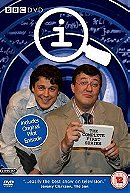
 239
239
 8
8
 8.6
8.6
